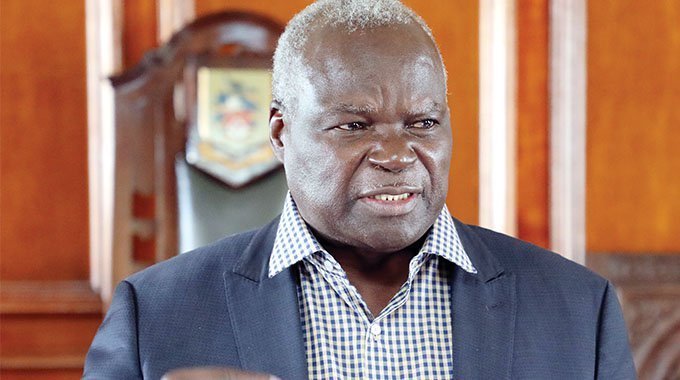On May 9, 2019 the Minister of Local Government, Public Works and National Housing, Honorable July Moyo told Parliament that local authorities are allowed to engage debt collectors as a way of recovering debts owed by residents.
According to the Combined Harare Residents Association (CHRA), the Minister’s pronouncement reveals huge policy inconsistency on the part of the government regarding the engagement of debt collectors by local authorities.
In November 2018, Minister Moyo tabled a Ministerial Statement in the National Assembly in which he warned local authorities against engaging debt collectors saying it was illegal to do so.
The Minister reiterated that there is no legal provision supporting the engagement of debt collectors in the Urban Councils Act or the Rural District Councils Act. He also made reference to the Local Government Circular No. 3 which directed all local authorities to desist from engaging debt collectors.
CHRA said his latest pronouncement (on May 9, 2019) to the effect that local authorities are allowed to engage debt collectors is a cause for concern.
In 2017, the Combined Harare Residents Association (CHRA) ran a series of community engagements during which it urged residents to resist debt collectors and instead, approach council for payment plans.
“We reiterate that the operations of debt collectors are illegal as there is no Act of Parliament that allows debt collectors to attach property or issue threats on behalf of creditors. CHRA will continue on the same path of mobilising residents to resist the debt collectors.
“The operations of debt collectors amounts to daylight robbery as they charge an extra 10 percent on top of what the residents owe council. In some cases, the money collected by the debt collectors is not remitted to council and residents remain in debt despite having parted with their hard earned money,” CHRA said.
CHRA urged Minister Moyo draw attention to the 2018 High Court ruling that declared the operations of debt collectors illegal in the case of the Law Society of Zimbabwe and Wellcash Debt Collectors (Pvt) Ltd.
The association said it is aware that government departments (primarily the Ministry of Local Government and Defence) owe the Harare City Council huge amounts of money and the Minister has no moral ground to authorise the engagement of debt collectors against residents when government itself is equally a bad debtor.
Failure by the government to pay rates to the Harare City Council, CHRA said, amounts to over taxation of residents who are now being forced to subsidise the government.
CHRA’s position against debt collectors, is premised on the following reasons (to quote former Harare Mayor, Bernard Manyenyeni)
“There appears to be a perceived bias towards the lower income suburbs of the city whose targets are largely victims of the current economic environment.”
– “The debt recovery methods employed so far have been reportedly brutal or at best arrogant.”
– “The yields from the exercise are reportedly way below the true values of the assets sold and also below the amounts owed.”
– “The correctness of outstanding debts to council is contested for a significant number of the rate payers targeted, especially for water accounts to residents who are not receiving water supply at all.”
– “Council has not come clean on the chicken-egg argument by the targeted ratepayers challenging council about service delivery.”
– “Council has very little moral ground to demand these amounts from suffering residents when its cost structure is far from satisfactory.”
“It is not convincing to squeeze money from the poor residents in order to allocate over 70 percent of that hard earned cash to salaries of employees who are known to be over-remunerated”.






